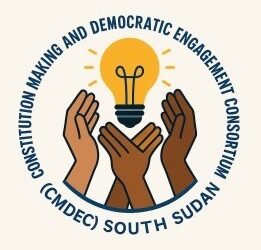By Yiep Joseph
Women and girls in South Sudan continue to face growing barriers in accessing essential Sexual and Reproductive Health and Rights (SRHR) services.
A country where humanitarian needs remain high due to ongoing displacement, economic hardship and fragile peace, women and girls remain in predicaments.
Despite many health facilities remaining operational, the reality on the ground is that access to maternal care, family planning, and services for survivors of gender-based violence is often limited especially in remote or displacement settings.
Jamnel Care, is a national non-governmental organization that works directly with communities to address these challenges.
The Project Coordinator, Robert Cheng’un laments the hardship women and girls endure as a result of fractured services.
“Even where facilities exist, distance, insecurity, and lack of trained personnel mean many women still give birth at home or delay seeking care,” Cheng’un said
“For a young girl in a rural area or a woman displaced from her home, accessing SRHR services can be nearly impossible,” he added.
The situation is compounded by cultural stigma, poverty, and low awareness around reproductive health, particularly for adolescents. With tensions rising in various parts of the country, displaced families often settle in overcrowded or informal camps, where SRHR services are scarce or entirely absent.
Recent escalations of conflict outside Juba have added new layers of complexity. As fighting displaces more families and restricts movement, health workers are increasingly unable to reach affected communities.
The fear of traveling long distances to health facilities further isolates women and girls, especially in rural and peri-urban areas remain a challenge.
Mental health support, a crucial requirement for women and girls experiencing trauma, remains limited.
Survivors of violence often suffer in silence due to a lack of safe spaces, counsellors, or legal support. As a result, the impact of gender-based violence (GBV) goes far beyond physical wounds.
Through mobile outreaches, safe space discussions, and youth-led education sessions, Jamnel Care empowers girls and women to make informed decisions about their reproductive health and seek care when needed.
“We don’t just want to treat we want to empower. Our approach centers women and girls as leaders and educators within their own communities,” Cheng’un said.
The organization called on the government, donors, and humanitarian actors to prioritize SRHR in national and emergency response plans. This includes strengthening health systems, expanding mobile services, training health workers, and ensuring that every girl and woman no matter where she lives can access respectful, quality care.
“These tensions are not just political they disrupt lives in the most intimate ways,” Jamnel Care staff, Naomi Yar said.
“When women can’t travel to deliver safely, or girls can’t access contraception due to insecurity, we see the ripple effects in the health and safety of entire communities,” she added.
“SRHR is not a luxury, it’s a right. Investing in it is not only about saving lives, but about restoring dignity, hope, and opportunity,” the official stressed.
As South Sudan continues its journey toward recovery and peace, ensuring that women and girls are not left behind must remain a national priority. SRHR services especially in crisis-prone areas are foundational to a just and inclusive future.




